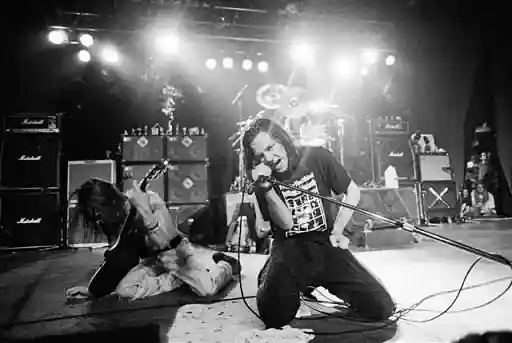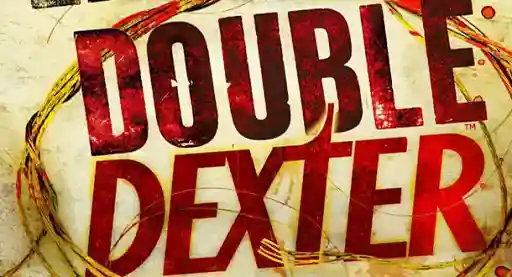If you didn't know already, it's in the book's subtitle: the tale of John Kennedy Toole's life is a sad one. His A Confederacy of Dunces, published over a decade after Toole's death, won the Pulitzer Prize and is now heralded as a comic masterpiece of the twentieth century. Still, he died thinking himself a failure.
Butterfly in the Typewriter is the most thorough and in-depth account of Toole's sad life and posthumous celebration to date. But here's the best part: in addition to being the most comprehensive and accurate biography about the man so far, it's also a gripping read.
Toole's unnoticed death, and his mother's subsequent championing of his novel, is so famous that one might expect his whole life to be a sad trawl through a catalog of downtrodden insecurities, poor luck, and wanting for company and recognition. While many of these did befall him, it's a surprise to find Toole well-loved, a proficient teacher, hugely intelligent (and recognized as such by co-workers and tutors), and relatively certain in his abilities. At least, for a while.
MacLauchlin manages this disparity with absolute mastery: how to reconcile the talented genius with the suicidal wreck he became? It's no mean feat. Thelma, Toole's mother, kept tight rein over her son's personal effects and writings. From these writings, and the memories and interviews from others in his life, it would be very easy for a biographer to sink into conjecture and hypothesizing, afraid that the reader would never stand for ambiguity in his actions. This especially frustrates during Toole's final days alive; but what can be done? MacLauchlin makes a valiant effort to piece together missing events, or suggest motives. To his great credit, he never tries to slip this by you; if it's just a theory without evidence, or based on hearsay, he's not going to bullshit you.
For example, we are shown Toole's heartbroken response to Marilyn Monroe's death in a letter to his parents. MacLauchlin offers possible motives for Toole's deep attachment to the film star, but is quick to point out that there are no definitive answers from Toole himself, and everything else is speculation. In moments like these, MacLauchlin excels as a biographer, both in his staunch refusal to devolve into gossip, and in the great care displayed toward his subject:
It seems one of those personal moments when the trace comforts of adolescence wither under the sobering reality of adulthood and one's own mortality.
Excitement builds as we move forward, as Toole grows creatively restless, and begins to form A Confederacy of Dunces. One of the great joys in this biography is spotting the odd detail or characteristic that will later burst forth on the page as Ignatius Reilly. There's gems aplenty for the Confederacy fans (an awkward evening at a gay party in the French Quarter stands out) but it's hard not to grin when a teaching co-worker of Toole's appears:
By far the most memorable and monumental specimen of eccentricity who left an indelible impression on Toole was Bobby Byrne, a mustached medievalist, tall and burly with dark hair."
Of course, Bobby Byrne has far more charm and grace than his fictitious counterpart (Byrne denied the connection, though who wouldn't?), but it's moments like this, moments in which we feel aligned with Toole's world for a brief glimpse, that make Toole's journey more involving, and the ending so tragic.
It's at the book's midpoint, as Toole begins to write his masterpiece, that Butterfly in the Typewriter fully lives up to its promise. In an almost breathless chapter, reeling excitedly along with Toole, we watch the whole book tumble out. Descriptive paragraphs are intercut with Toole's correspondence. Years and years of creative tension building up, he unleashes Ignatius onto the blank page. The joy of writing is captured perfectly; we want to reach through the page and touch Toole on the shoulder, to offer him a few words of encouragement and sympathy.
For Toole had an oddly contradictory belief towards his writing. At times, he felt possessed of masterly greatness, yet was easily knocked by criticism, and seemed to avoid getting his hopes up. He even puts that very handwritten addendum onto a letter to a friend when talking about the book: "I must not set my hopes too high."
Thelma, his mother, took great care in handling his legacy. Her belief in the genius of her son never wavered, and another whole volume could be written on the resolute and determined manner in which she pushed her son's memory into posterity. Her appearances in Butterfly in the Typewriter, while not scant, always whet the appetite for more.
We always yearn for more, through no fault of the book's. There are many enigmas left undocumented and speculative in Toole's life. Did Toole's mental breakdown cause his lack of faith in his work, or the reverse? Did he take lovers? The occasional inconclusive suspicion renders this area of his life a mystery, and MacLauchlin tactfully abstains from going too deep into the debate. (A fascinating letter from an unknown woman is maddening in its intrigue however, ending with "I love you, I love you, I love you," and signed "Ellen".) Whole aspects of Toole remain mysterious, even in a book as thorough and lovingly researched as this. Still, the themes that bound him are present and vivid: we are always pulled back to New Orleans, to his mother, to his quiet determination to be a great writer.
A brief excerpt from a letter Toole sent to a friend:
… I ended the afternoon with several rums with lemon and water and lay beneath my mosquito net to contemplate the universe and my position in it. The results of this contemplation were negligible at best."
Less than a year after writing this, Toole had produced a masterpiece. The tragedy is that he died believing he had failed. The full account of Toole's life is far more moving and intriguing than the borderline "ironic joke" aspect of his suicide might imply. I can't imagine a book getting more to the heart of Toole than this one. The accounts of his writing are euphoric, the events of his fall devastating. If you care for the man, and for his grotesque and beloved creations, read this book.

About the author
Jack is a graduate of the University of Warwick. His current project is a surreal biography of the band Paris and the Hiltons. He lives in the UK, where he founded the netlabel Portnoy Records. He can't juggle yet, but really is trying very hard. Often he tells people he's ten feet tall, even when they're standing in front of him, which makes for awkward pauses. He writes incoherent thoughts and opinions at the International Society of Ontolinguists.








